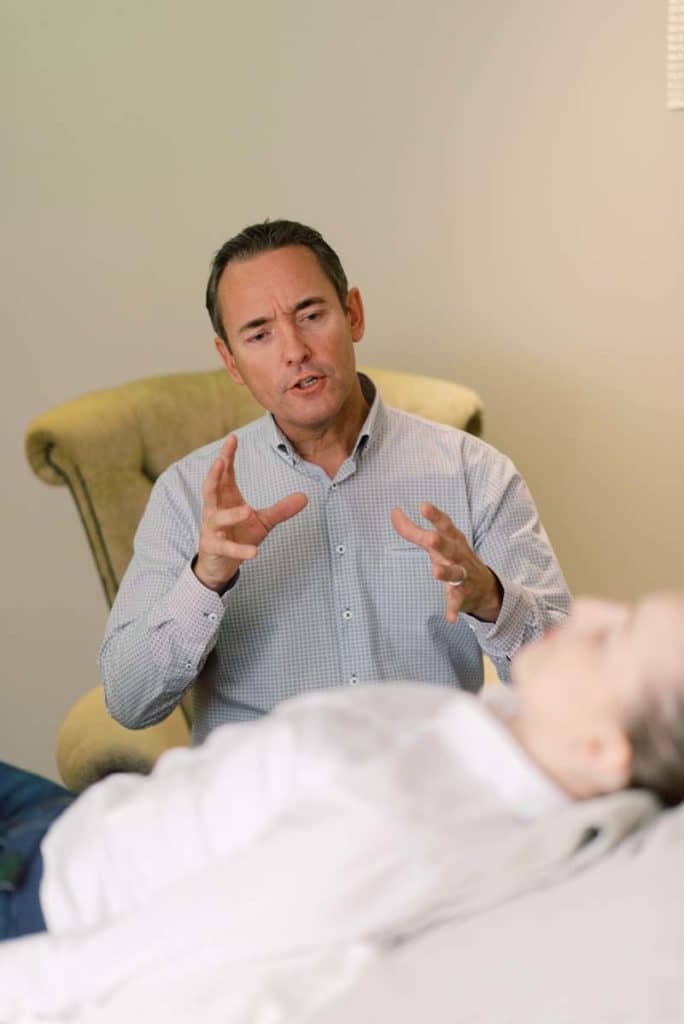Therapy vs. Treatment. Many people confuse these two terms or use them interchangeably. However, there’s a distinction between the two. Therapy is mainly used to mean rehabilitation while treatment is used to mean cure.
Sometimes these two terms are used as synonyms in the context of addiction treatment with many saying they’re receiving addiction treatment or therapy. The key difference here is that therapy is one of many different types of addiction treatment methods available. Addiction treatment is a wide field that employs different forms of therapy to help those struggling with substance abuse. At the same time, there are different treatment programs available with the same goal.
The best way to clear up the difference between addiction therapy and treatment is by giving various examples of each.
Addiction Therapy
Therapy is one of the effective techniques utilized to help individuals break free of their addictions. While there are different therapy methods, they all have some aspects in common. For instance, therapy is often conducted in sessions where a person attends several hours of therapy on certain days, depending on their treatment schedule. The different therapies also focus on teaching individuals the skills they need to stay sober as well as helping them navigate various situations in their lives without resorting to using alcohol or drugs.
Common types of therapy used in addiction treatment include:

- Counseling therapy.
This is the cornerstone of treatment here at Evolve Indy. Our drug and alcohol rehab programs all employ some form of counseling therapy to help clients including”
· Individual therapy. Here, clients have 1 on 1 session with a therapist in a safe, conducive environment. They get to examine the root causes of their addiction, work on their recovery goals, and any other issues that may crop up
· Group therapy. Guided by a therapist, clients engage in discussions relevant to drug or alcohol abuse in a group. They get to receive valuable support and feedback from peers who are going through the same.
· Family therapy. Our family therapy program is designed to help families reconcile, reconnect, and rebuild bonds that have been broken by addiction. Families learn about addiction, communication skills, and relapse prevention, among others.
- Cognitive Behavioral Therapy (CBT)
This type of therapy involves getting the client to identify their thought patterns and isolate the negative, unhealthy ones. The latter are then replaced with more positive thought patterns as a way to influence a behavior change. The overall aim of CBT is to help patients learn coping skills that can help them in risky situations instead of turning to alcohol or drugs. It’s also useful when dealing with a co-occurring mental disorder.
- 12-Step Facilitation
We also employ community therapy in the form of support groups or 12-step facilitation. These are mostly geared toward those who’ve completed our programs and are seeking to reintegrate into society. The focus is mainly on recognizing the harmful consequences of addiction, sharing experiences with others, and receiving support in the recovery journey.
- Alternative Therapy
Some rehab facilities also make use of alternative therapy. These are designed to complement other therapies while stimulating individual growth and discovery, teamwork, and interaction. Examples include yoga, art, music, or equine therapy.
Addiction Treatment
Addiction treatment is a wide term that encompasses the various methods used to wean an individual off substance use. It encompasses therapy as well as the use of certain medications to treat addiction.
The addiction treatment methods that we employ at our drug rehab center in Indiana are all evidence-based. We also emphasize providing individualized treatment based on a client’s unique treatment needs and recovery goals. This allows us to easily monitor individual progress through our treatment programs and to provide more assistance if any is required.
Other than therapy, medication is widely used in treating addiction. Various medicines are used to curb cravings or to ease the withdrawal symptoms that come with quitting drug or alcohol use. The most common medications used include:
- Buprenorphine, Methadone, and Naltrexone for opioid addiction.
- Acamprosate, Naltrexone, and Disulfiram for alcohol addiction.
The most common addiction treatment programs include:

- Detoxification programs.
As part of addiction treatment, detox programs can be standalone or components of a wider program. These programs aim to monitor patients as their bodies get rid of the chemical substances left after cessation of drug use. Medically assisted detox is used in some instances to help individuals cope with their withdrawal symptoms, some of which can be severe and life-threatening. After undergoing detox, patients are better able to concentrate on addiction treatment programs.
- Inpatient or residential programs.
These are designed to separate people from the negative environment that led them to start drinking or using. Mostly recommended for those with severe addiction or co-occurring diagnosis, residential programs provide 24-hour intensive and comprehensive treatment. In addition to learning about addiction, patients also learn healthier habits, coping skills, and relapse prevention to help them stay sober.
- Outpatient programs.
Outpatient addiction treatment programs are the opposite of inpatient ones in that clients don’t have to stay at the place of treatment. They attend treatment sessions for several hours on selected days of the week and get to go home at the end of the session. This gives people the flexibility to keep up with the demands of their daily lives while still receiving treatment.
The most common outpatient treatment programs are:
· Partial hospitalization (PHP). The partial hospitalization program at Evolve Indy offers our clients treatment intensity that is similar to residential programs.
· Intensive outpatient programs. Our intensive outpatient program is a step down from either residential treatment or PHP. They provide more intensive treatment than traditional outpatient programs.
· Outpatient programs. Geared towards patients with mild to moderate addiction and no co-occurring disorders, our outpatient treatment program gives clients the freedom to attend treatment while maintaining their schedules.
Get in touch with us today to learn more about the addiction treatment and therapy methods we use at our Indiana rehab facility.

